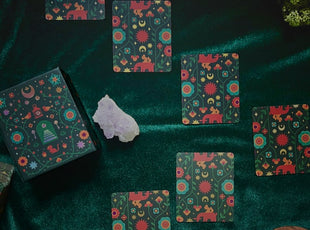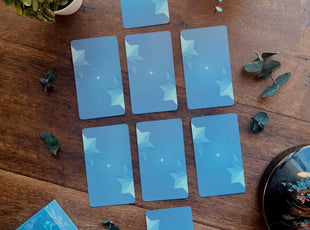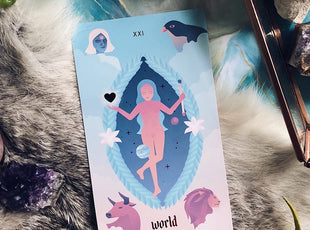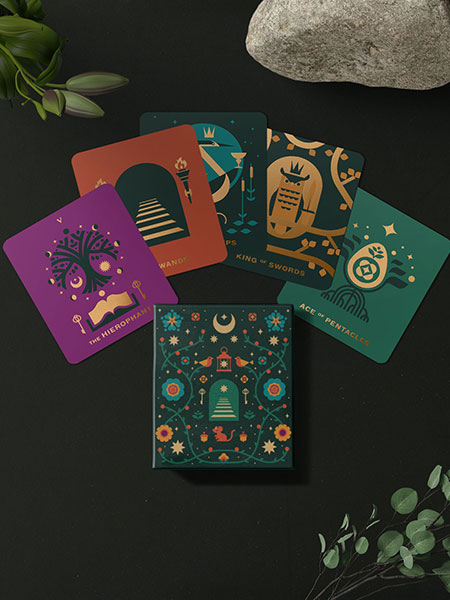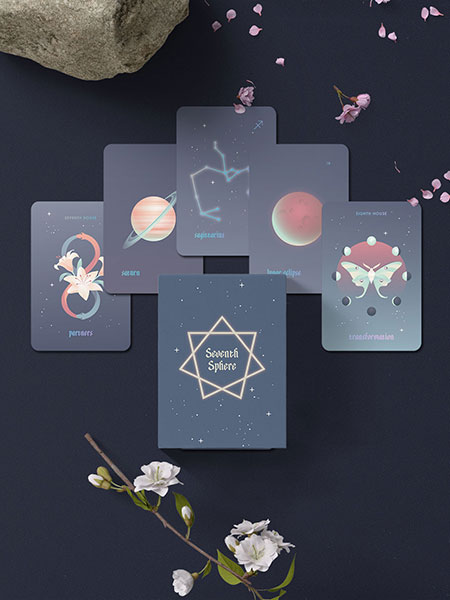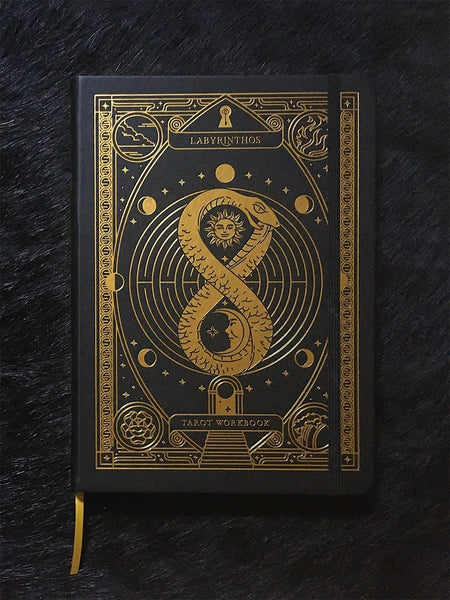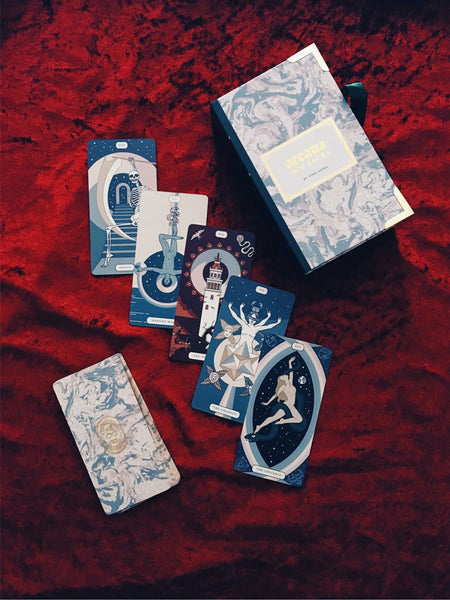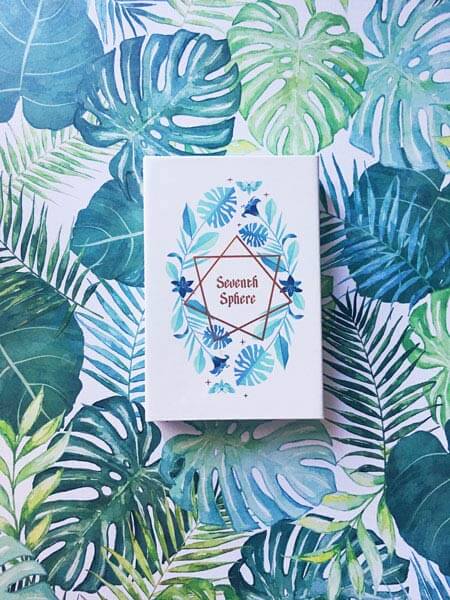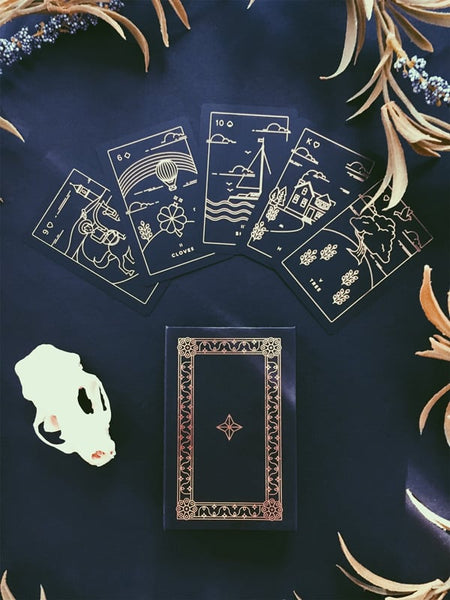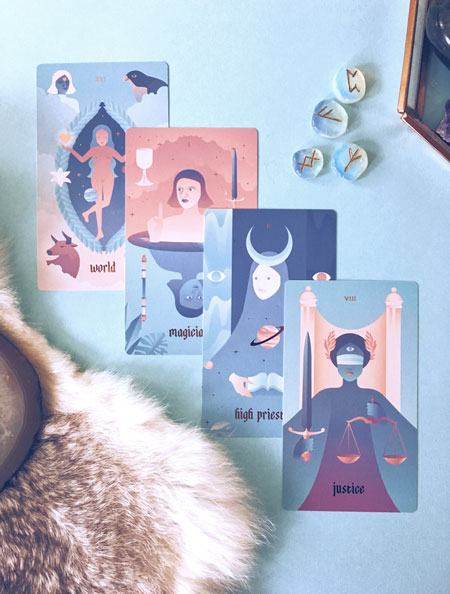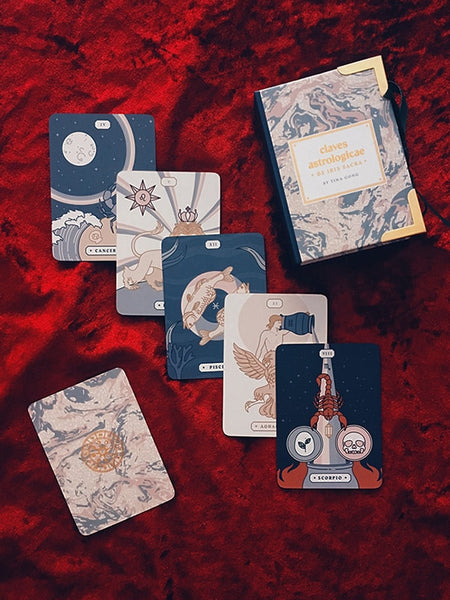✦ ✦ ✦
Jungian Archetypes Tarot Spread - A 5 Card Tarot Spread
Published
Jungian Archetype Definition
You may have heard the word archetype being used in conversation before; it generally means a recurring symbol or a kind of model that we can use an example of something that is much more complex. But when it comes to psychology, there's a much more specific meaning and concept that it refers to. Carl Jung was a Swiss psychiatrist and psychoanalyst who is credited as one of the founders of analytical psychology, and also happens to be one who developed the theory of archetypes through his work. When it comes to Jungian psychology, archetypes are certain character or behavior models that we (sometimes subconsciously) use to shape our own personalities.
Archetypes and the Collective Unconscious
Carl Jung himself, who classified the human psyche as having three parts: the ego, the personal unconscious, and the collective unconscious, described archetypes as being highly developed elements of something known as the collective unconscious. The collective unconscious is what Jung referred to as the knowledge and experiences that we share as a species, a sort of echo of information through the generations. He believed that universal mythical characters reside in the collective unconscious of people all over the world and that these archetypes have an impact on how we live our lives.
There is a great deal of debate regarding how many archetypes there are, but the most common consensus is that there are twelve main archetypes. That being said, here we will only discuss five of the more well-known ones: Persona, Shadow, Anima, Animus, and Self.
If you're looking to read more about the jungian archetypes that exist in the tarot and major arcana, we wrote a whole article about it here!
Go Beyond Tarot Meanings
Learn the basics of the ancient esoteric tradition of tarot by starting your initiation ritual! Our app teaches you with simple, easy to use exercises while exploring our academy. Sign up to get the link!
Five Common Jungian Archetypes
Persona Archetype
A persona refers to a person’s public face, the image of themselves that they present to the world. Carl Jung himself describes the Persona as “a kind of mask, designed on the one hand to make a definite impression upon others, and on the other to conceal the true nature of the individual”. It is believed that every person has at least one persona, based upon either various archetypes or comprised of qualities influenced by societal roles.
Shadow Archetype
A Shadow is made up of a person’s negative characteristics, or at the very least the aspects of ourselves that we consider negative. This is the side of a person that they are hesitant to show to the rest of the world because they are ashamed of these negative qualities and wish to keep them hidden from view. A Shadow can also include repressed ideas or aspects of your personality that you don’t want to acknowledge.
Anima Archetype
This archetype represents feminine characteristics within men (the alternative, Animus, refers to male characteristics within women). Anima represents aspects of the personality that might be considered by many to be traditionally feminine, such as empathy. While traits like these are indisputably part of our personalities as a whole, certain qualities are often withheld from a person’s Persona, particularly if they are trying to project a masculine front to the world. Jung also theorized that there are four levels to Anima development; he named these levels Eve, Helen, Mary, and Sophia.
Animus Archetype
This archetype represents masculine characteristics within women. Animus can be represented by qualities that are seen as traditionally masculine, such as assertiveness, courage, vitality, and strength.
Self Archetype
According to Jungian psychology, the Self is the realized product of integrating all the aspects of your personality; it signifies the unification of a person’s consciousness and unconsciousness.
How to Use this Jungian Archetypes Tarot Spread - A 5 Card Tarot Spread
Naturally, since we've been exploring aspects and theories of psychology here at Labyrinthos, it seemed simple and obvious enough to turn these concepts into a spread that you can use.
I find this tarot spread particularly helpful when I'm trying to make hard decisions - and there are so many different voices and approaches that are in my mind. Sometimes it helps to clarify the points of view that these aspects of myself are trying to say. For example, if I'm trying to make a choice about whether to start a new business, my Persona archetype may feel nervous about how I will be perceived. My self archetype may be overjoyed, and know that it is the right thing to do. My Animus archetype may be concerned about the more practical aspects of the whole situation. And so on and so forth. It's about teasing out all the ways that we may look at something, before coming out with a final answer that makes most sense for us.
- Persona - How am I being perceived? How do what others think of me affect the situation?
- Shadow - What am I ashamed of? What do I want to hide and not acknowledge?
- Anima - What is my divine feminine saying? If was thinking only of my happiness, what would I do?
- Animus - What is my divine masculine saying? What should I consider? What are my drives or my duties?
- Self - What does my heart of hearts want? What are my true desires?
Jungian Archetypes, 5 Card Tarot Spread Diagram

1 comment
-
Jim JohnstonBeing guided by the universe for the past 18 months I’m not even remotely surprised that you sent me this article and new spread to use. Thanks for all you do for me and the rest of the enlightened. Jim J
